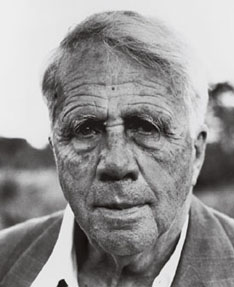Moles by Mary Oliver
This week, an animal poem by Mary Oliver
 Mary Oliver was born on September 10, 1935 in Maple Heights, Ohio. She is the author of many book , including American Primitive (1983), for which she won the Pulitzer Prize. She currently lives in Provincetown, Massachusetts.
Mary Oliver was born on September 10, 1935 in Maple Heights, Ohio. She is the author of many book , including American Primitive (1983), for which she won the Pulitzer Prize. She currently lives in Provincetown, Massachusetts.
Moles
Under the leaves, under
the first loose
levels of earth
they're there -- quick
as beetles, blind
as bats, shy
as hares but seenless than these --
traveling
among the pale girders
of appleroot,
rockshelf, nests
of insects and black
pastures of bulbs
peppery and packed full
of the sweetest food:
spring flowers.
Field after field
you can see the traceries
of their long
lonely walks, then
the rains blur
even this frail hint of them --
so excitable,
so plush,so willing to continue
generation after generation
accomplishing nothing
but their brief physical lives
as they live and die,
pushing and shoving
with their stubborn muzzles against
the whole earth,
finding it
delicious.
Under the leaves, under
the first loose
levels of earth
they're there -- quick
as beetles, blind
as bats, shy
as hares but seenless than these --
traveling
among the pale girders
of appleroot,
rockshelf, nests
of insects and black
pastures of bulbs
peppery and packed full
of the sweetest food:
spring flowers.
Field after field
you can see the traceries
of their long
lonely walks, then
the rains blur
even this frail hint of them --
so excitable,
so plush,so willing to continue
generation after generation
accomplishing nothing
but their brief physical lives
as they live and die,
pushing and shoving
with their stubborn muzzles against
the whole earth,
finding it
delicious.
 Mary Oliver was born on September 10, 1935 in Maple Heights, Ohio. She is the author of many book , including American Primitive (1983), for which she won the Pulitzer Prize. She currently lives in Provincetown, Massachusetts.
Mary Oliver was born on September 10, 1935 in Maple Heights, Ohio. She is the author of many book , including American Primitive (1983), for which she won the Pulitzer Prize. She currently lives in Provincetown, Massachusetts.
 Robert Frost
Robert Frost 

